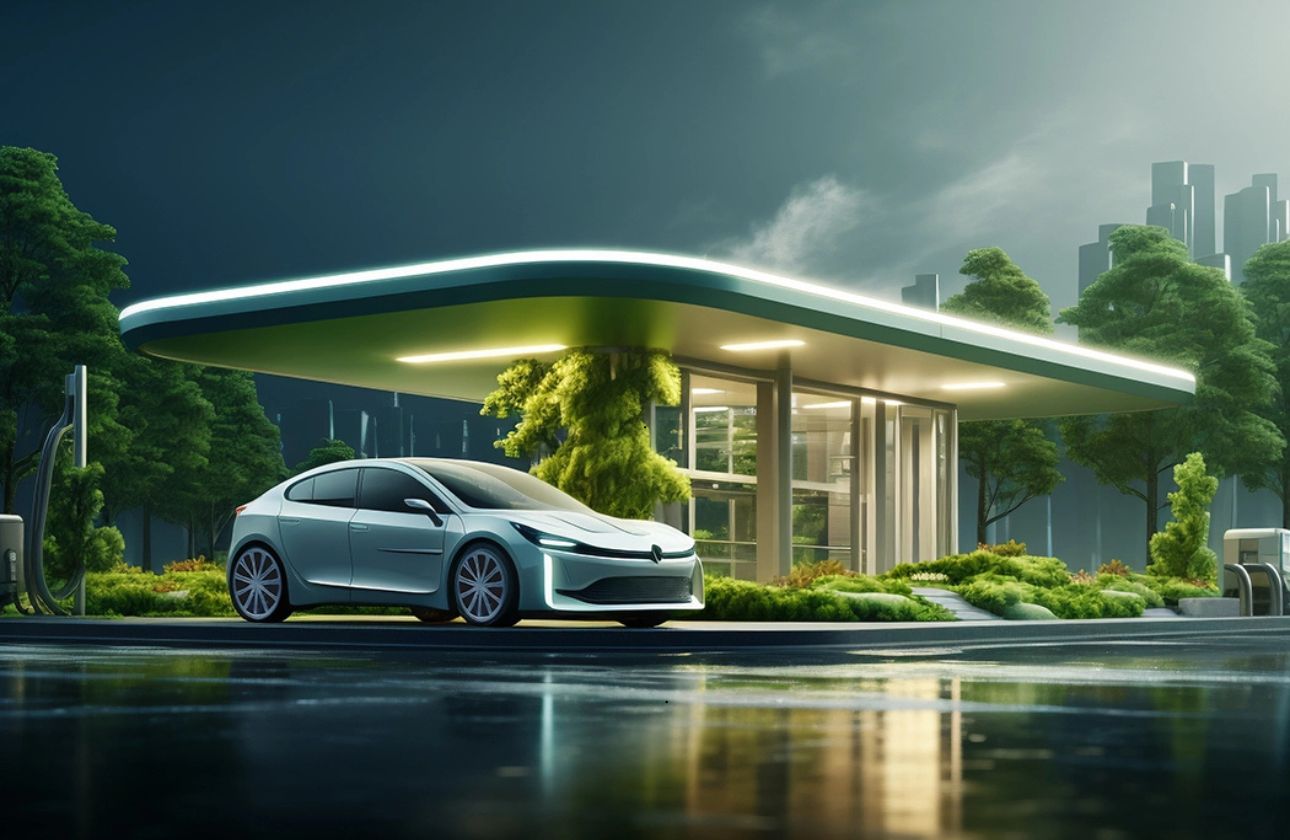The Rise of Electric Vehicles
Electric vehicles (EVs) have undergone a remarkable transformation over the past few decades. What was once considered a niche market for eco-conscious individuals has now evolved into a global movement, with governments, automakers, and consumers embracing the technology for its environmental and economic benefits. In this article, we explore the evolution of electric vehicles, their impact on the environment, and the future of this green revolution on wheels.
The Early Beginnings of Electric Vehicles
The concept of electric vehicles is not as modern as many may think. In fact, electric cars date back to the early 19th century. The first practical electric vehicle was developed in the 1820s by Scottish inventor Robert Anderson, who built a crude electric carriage. However, it wasn't until the late 19th century that EVs started to gain traction, with manufacturers like Thomas Parker in England and William Morrison in the United States building the first functional electric cars.
By the early 1900s, electric vehicles were seen as a promising alternative to gasoline-powered cars, especially in urban areas. They were quiet, easy to drive, and didn't require the manual cranking that early gasoline engines did. However, the development of the internal combustion engine (ICE), coupled with the mass production of affordable gasoline cars like the Ford Model T, led to the decline of electric vehicles in favor of fossil fuel-powered cars.
The Decline and Resurgence of Electric Vehicles
For much of the 20th century, gasoline-powered vehicles dominated the automotive industry, and electric vehicles faded into obscurity. However, the global oil crises of the 1970s and growing environmental concerns in the 1990s sparked a renewed interest in alternative fuel sources.
In the late 1990s and early 2000s, several automakers began experimenting with electric vehicle technology once again. The introduction of the Toyota Prius in 1997, the world’s first mass-produced hybrid vehicle, marked a significant step forward in the development of eco-friendly transportation. Although hybrid vehicles were not fully electric, they served as a bridge to electric-only vehicles by combining a gasoline engine with an electric motor, offering better fuel efficiency and reduced emissions.
The real turning point came in the mid-2000s with the founding of Tesla Motors. Tesla, led by visionary entrepreneur Elon Musk, revolutionized the EV industry by introducing fully electric cars that were not only environmentally friendly but also high-performance, stylish, and practical for everyday use. Tesla's Model S, launched in 2012, proved that electric vehicles could offer long-range capabilities, rapid acceleration, and cutting-edge technology, helping to break down the barriers of consumer skepticism.
Technological Advancements Driving EV Growth
As the demand for electric vehicles grew, so did the technological innovations that supported them. One of the most significant advancements was the improvement of battery technology. Lithium-ion batteries, which have a higher energy density and longer lifespan than previous types, became the standard for EVs. This allowed for longer driving ranges on a single charge and faster charging times.
Charging infrastructure also expanded dramatically. Initially, one of the major obstacles to EV adoption was the lack of charging stations. However, governments, private companies, and automakers began investing heavily in building an extensive network of charging stations, making it easier for consumers to charge their vehicles at home or on the go.
In addition to battery improvements, electric vehicles also saw advancements in software and connectivity. Tesla, in particular, became known for its over-the-air software updates, which allowed for continuous improvement of the vehicle’s performance and features, including autonomous driving capabilities. As a result, electric cars were no longer just about reducing emissions; they became part of a larger technological ecosystem that includes smart devices, artificial intelligence, and self-driving capabilities.
Environmental Benefits of Electric Vehicles
The most significant benefit of electric vehicles is their positive impact on the environment. Unlike traditional gasoline-powered vehicles, electric vehicles produce zero tailpipe emissions, reducing air pollution and helping to mitigate climate change. The shift to electric cars is seen as one of the most effective ways to reduce carbon emissions, especially as the world moves toward renewable energy sources like solar and wind power.
Electric vehicles also contribute to a decrease in noise pollution, as they are much quieter than their internal combustion engine counterparts. This makes urban environments more pleasant and reduces the overall noise footprint of transportation.
However, it’s important to note that while EVs have zero tailpipe emissions, their environmental impact is still dependent on the source of the electricity used to charge them. In regions where electricity is primarily generated from fossil fuels, the environmental benefits of EVs are somewhat reduced. Nevertheless, as the global energy mix shifts towards renewable energy, the environmental advantages of electric vehicles will continue to grow.
The Future of Electric Vehicles
The future of electric vehicles looks incredibly promising. Governments worldwide are setting ambitious goals for reducing emissions and increasing the adoption of EVs. In Europe, countries like Norway and the Netherlands are leading the way, with plans to ban the sale of new internal combustion engine vehicles by 2030 and 2035, respectively. In the United States, President Biden has pledged to make half of all new vehicles sold by 2030 electric, with federal incentives and investments in clean energy to support this transition.
Major automakers, including General Motors, Volkswagen, and Ford, are also making significant strides in the EV market. They are committing to producing a larger percentage of electric vehicles in the coming years and investing in new technologies like solid-state batteries, which promise even greater energy density and faster charging times.
Another exciting development in the future of EVs is the continued progress in autonomous driving technology. Fully self-driving electric cars could revolutionize transportation, reducing accidents, increasing efficiency, and improving mobility for individuals who are unable to drive.
The evolution of electric vehicles represents a green revolution on wheels, transforming the way we think about transportation and our impact on the environment.




Comments (0)